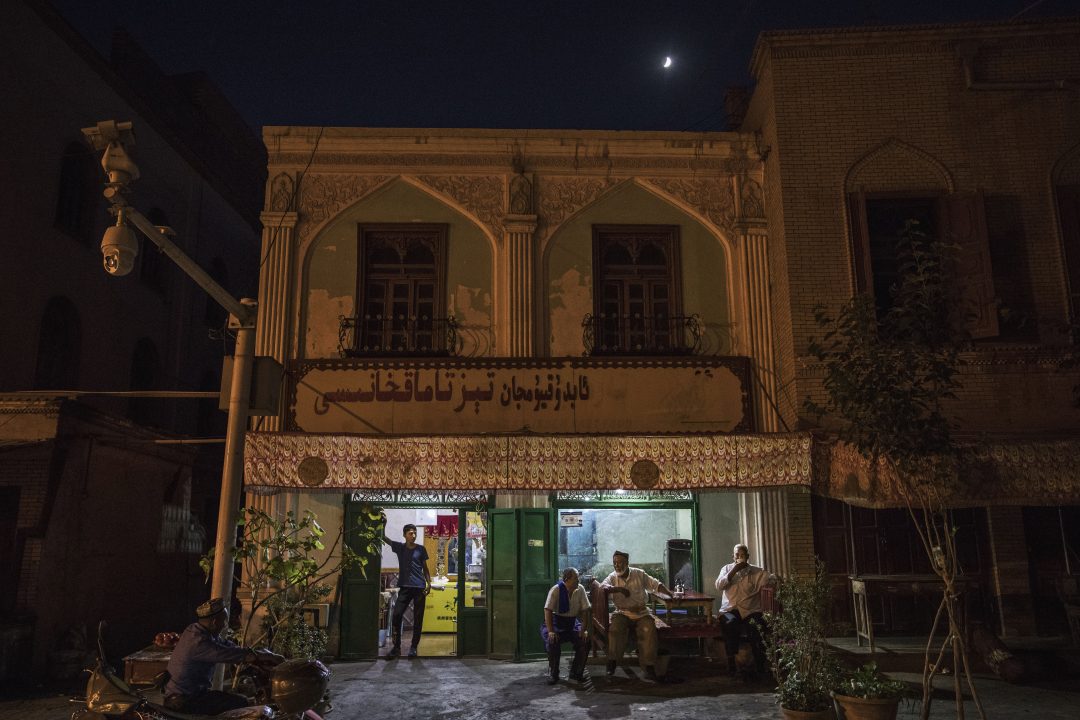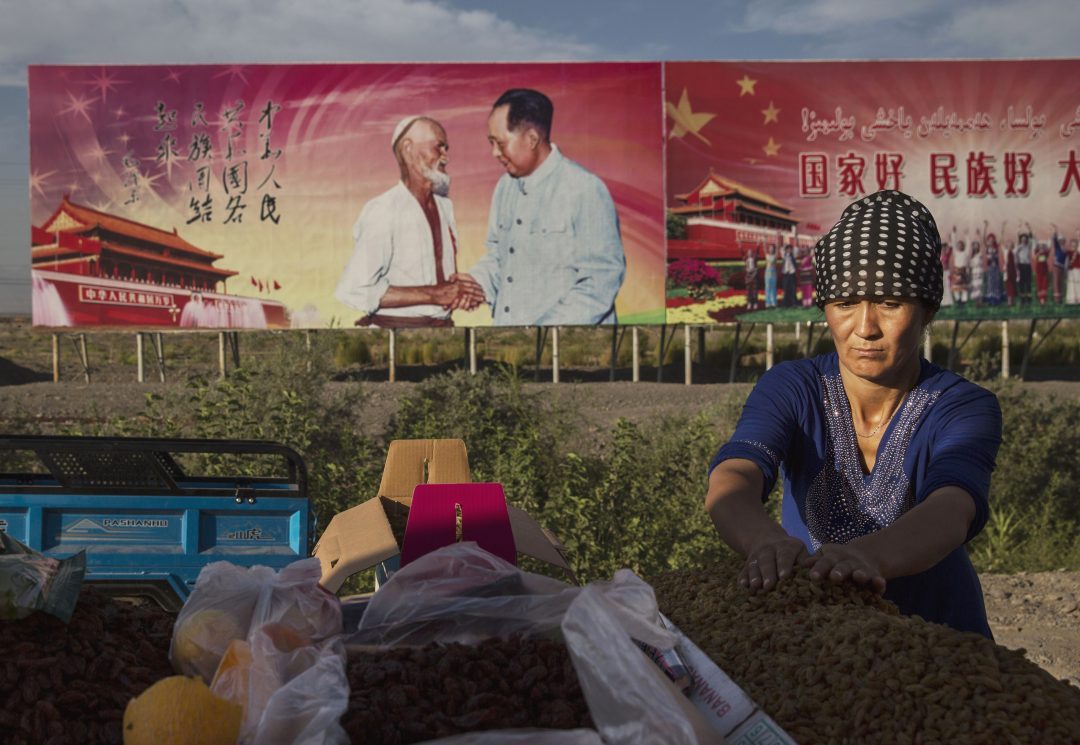China’s treatment of its Uyghur minority is a tragedy that has been going on for years, but about which there has only recently been a widespread debate. The Muslim-majority Uyghur population, of Turkic ethnic descent, inhabits the northwestern region of Xinjiang. Exploiting local secessionist movements and terrorist activities by small jihadist groups, the Chinese authorities have launched a vast repressive operation that has affected the local Muslim population in its entirety. Beijing sees Xinjiang as strategically important and has thus decided to effectively erase the Uyghur population and culture from the region. Sterilisations, reeducation camps, mass surveillance, and forced labour are just some of the ways China is suffocating millions of Uyghur lives. And, often, there is international complicity.
Who are the Uyghur people?
Uyghurs are one of the 56 ethnic groups recognised by the Chinese Communist Party. Primarily Sunni Muslims, they inhabit the Autonomous Region of Xinjiang in northwestern China, and their population is some 12 million strong. They were once the majority ethnic group in the region, but the Chinese state encouraged the settlement of Han farmers (China’s ethnic majority). Thus, the Uyghur primacy came to an end.
The “Uyghur problem” – as China sees it – originated in the secessionist movements that arose following the collapse of the Soviet Union. In the wake of the formation of independent nations in the Caucasus, Uyghur Muslims in Xinjiang started to demand independence more and more insistently, leading to growing tensions with Beijing. Chinese authorities see the region as crucial to their economic and geopolitical goals, due to its wealth of energy resources and its position connecting China to Central Asia and the Middle East.
Over time, ethnic clashes in Xinjiang intensified, with the formation of Uyghur terrorist cells like the Eastern Turkistan Islamic Movement (now the Turkistan Islamic Party), which was responsible for a number of attacks. In 2015, China launched a major operation in Xinjiang whose alleged purpose was to target terrorist cells. However, it soon became clear that its scope was much wider. In the name of counter-terrorism, Beijing enacted a process of sinicisation in the region, starting with the de-Islamicisation of the local population – effectively suppressing Uyghur culture. These activities went widely unnoticed for a long time thanks to Chinese state censorship, but, over the past two years, many human rights organisations have started to decry what’s going on.
The war on Islam and re-education camps
For some time now, Xinjiang has been turned into a police state. Several investigations have highlighted the fact that anyone entering the region is made to install GPS tracking apps on their mobile devices, while surveillance cameras with facial recognition technology are dotted around the territory. Phone tapping is the norm. The Chinese authorities declare that their aim is still counterterrorism. However, their activities target not only suspected jihadists but the entire local Muslim population. Mass surveillance is the first step in Beijing’s total control of Uyghur life, aimed at controlling the population but also, and primarily, at eroding their identity.

In recent years, thousands of mosques in Xinjiang have been knocked down. Their number has fallen from some 24,000 in 2017 to approximately 15,000 today. The issue, supposedly, is that the architecture is too distinct from China’s customs and traditions. However, the real reason behind this destruction is to deprive Uyghurs of their places of worship, making it harder for them to find safe, communal spaces, and eroding their identity as Muslims. Aside from mosques, government censorship has also affected many other aspects of daily life that in some way denote Uyghur presence in the region, like signs and writing in Arabic.
Beijing’s crackdown in the region, however, takes many other – even more direct – forms. Several investigations have in fact revealed the existence of detention and re-education centres, where one million Uyghurs are said to be imprisoned. Here, they are subjected to daily brainwashing with the aim of achieving full de-Islamicisation – and, consequently, sinicisation. The government labels these centres as places where terrorists are rehabilitated, but increasing evidence from first-hand witnesses tells a different story. Uyghur citizens – regardless of their background or criminal history – are subject to incarceration, forced labour in cotton fields, and indoctrination on Chinese culture.
Demographic genocide
While China is trying to destroy Uyghur culture, customs, and traditions through repression and the indoctrination of people belonging to this ethnic group, its activities are also aimed at the future. Beijing’s solutions to the “Uyghur problem” also include reducing birth rates within this ethnic minority, to make it gradually disappear. This practice – according to the Convention on the Prevention and Punishment of the Crime of Genocide from 1948 – constitutes “demographic genocide“, a position more and more experts are expressing their agreement with.

The genocidal actions of Chinese authorities have involved a programme of forced reduction of Uyghur birth rates through mass sterilisations, the imposition of contraceptive methods, and induced abortions. Women are compelled to insert intrauterine devices (IUDs) that cannot be removed without a surgical procedure, or forced to ingest or inject other types of contraceptives. Furthermore, several witnesses report that pregnant women who visit hospitals for routine checkups are forced into abortion procedures. Finally, there are also reports of cases of newborn babies being killed.
Anthropologist Adrian Zenz noted that the proportion of sterilised women in Xinjiang rose from 0.04 per cent in 2016 to 0.25 per cent in 2018. Furthermore, the birth rate in the region has collapsed dramatically in recent years. Up to 2015, the Uyghur population had the highest birth rate in the country, with 22 births per 1000 people. In 2018, this figure had fallen to 8 per 1000.
The Uyghur genocide: international perspectives
During its final days in office, the Trump administration spoke out against the Uyghur genocide. “I have determined that the PRC [People’s Republic of China], under the direction and control of the CCP [Chinese Communist Party], has committed genocide against the predominantly Muslim Uyghurs and other ethnic and religious minority groups in Xinjiang,” said former Secretary of State Mike Pompeo. His successor in the Biden administration, Anthony Blinken, expressed his support of this position regarding China’s actions.
The US taking a stand on this issue is important in drawing further attention to the issue, which is gradually being acknowledged throughout the world. The European Union had already expressed its concerns, voiced by High Representative Federica Mogherini, as did many countries via their ambassadors, in a letter to the United Nations condemning China’s treatment of the Uyghur minority. Thus far, however, economic interests linked to trade with China have prevailed, with sanctions remaining at a hypothetical stage while new trade agreements were being signed. This attitude is even more evident in the bilateral relations between Beijing and several countries in the Middle East, which – despite a shared religion with the Uyghur people – have always taken the side of the Chinese state, whose partnership is seen as too important.
Turkey – where the Uyghur population has its roots – is a case in point. President Recep Tayyip Erdoğan has maintained an ambiguous approach to the issue. Until recently he repeatedly expressed support for the Turkic minority population, demanding explanations from Beijing on their treatment and criticising the Chinese authorities’ actions. Recently, however, things have changed. “All people and ethnicities in Xinjiang live happily,” the Turkish leader declared at a summit with his Chinese counterpart, Xi Jinping. This reversal coincided with the growth of the trade partnership between the two countries, part of the Belt and Road Initiative. The victims, once again, are Xinjiang’s 12 million Uyghurs, seen as too economically insignificant to deserve to be saved from the ongoing cultural and demographic genocide.









